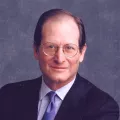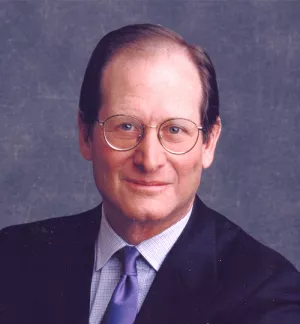Experts don't make big consequential decisions for public, private or non-profit institutions. Generalist leaders do.
These decisions are based on predictions about the future and can make or destroy a leader's reputation and career. Should a CEO invest $2 billion in a new aircraft engine technology? Should a foundation leader take most of the funds and place a big bet on a particular goal---improving elementary and secondary education through smaller school and teaching units? Should the president continue to pay the terrible price of lives and treasure in a U.S. presence in Afghanistan?
These predictions are, in turn, based on an expert's knowledge about facts, trends, methods of change and risks. How will the technology work and with what results? How will the school initiative work and with what impact? Will Afghanistan evolve--in military, economic and societal terms--as we envision?
Yet experts have biases, may not see out of their intellectual silos, may thus fail to ask all the right questions, may not play well with other experts, may not admit all the uncertainties about their views of the future.
Seasoned decision-makers value experts' views---but view experts skeptically. They learn to cross-examine them with ferocity. They learn to create "Red" teams and "Blue" teams. The Red Team is charged with providing the affirmative account of conditions, options, risks and recommendations; and the Blue Team is charged with tearing the Red's position apart in order to expose the real issues. And these teams must have multiple experts because most hard problems aren't defined within a single intellectual
discipline--and if they are, a fatal mistake is being made of defining the problem incorrectly (in which case no solution will work).
But at the end of the day, the cliché about leadership being lonely is true, because no facts, no analysis, no expert can provide the ultimate judgment that is required to make these huge decisions in a state of some ignorance. Good use of experts will show what we think we know but also what we don't know. And the "don't knows" are often at the core of the decision. (Can a civil society that provides security, without endemic corruption, to the diverse Afghan people be built to leech their allegiance away from the Taliban?) Plus, the "don't knows" also include significant uncertainties about how the "politics" of the issue will unfold, never mind the "policy" uncertainties, at least for big public decisions.
Fighting one's experts is a key task for any generalist leader. But if not done effectively, it is likely to lead him to that place where tragedy is possible. The inevitability of a choice---made without adequate knowledge and based ultimately on judgment--can have significant positive or adverse consequences for the people doing the job, for the institution, for the leader and, in some instances, for the nation.
Deciding in a state of ignorance is a more profound problem than properly managing the experts.
"Bob Woodward's new book on the Obama White House portrays a president so frustrated with top military advisers for their refusal to provide what he considered a reasonable exit strategy from Afghanistan that he devised one himself. How should leaders reconcile the laudable instinct to rely on the advice of experts with the sometimes urgent need to force them to think outside the box?"


